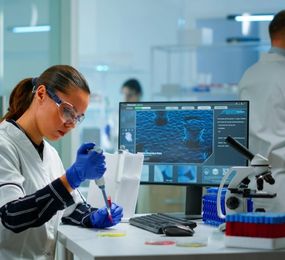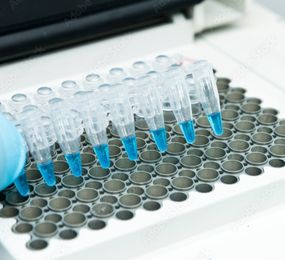The biomanufacturing industry, while contributing to advancements in healthcare, agriculture, and materials, also has an environmental footprint. As the world grapples with the pressing issue of climate change, it is imperative for biomanufacturing to adopt sustainable practices that reduce its carbon footprint.
Understanding the Impact:
Biomanufacturing processes can contribute to greenhouse gas emissions through energy consumption, waste generation, and the use of fossil fuel-derived materials. To mitigate these impacts, several strategies can be implemented:
- Energy Efficiency: Investing in energy-efficient equipment, optimizing processes, and utilizing renewable energy sources can significantly reduce energy consumption and associated emissions.
- Waste Reduction: Implementing waste reduction measures, such as recycling, reuse, and waste-to-energy conversion, can minimize the environmental impact of biomanufacturing.
- Sustainable Feedstocks: Utilizing renewable feedstocks derived from agricultural waste, forestry residues, or algae can reduce reliance on fossil fuels and lower carbon emissions.
- Carbon Capture and Utilization: Exploring technologies to capture and utilize carbon dioxide emitted during biomanufacturing processes can help mitigate climate change.
Case Studies:
Numerous biomanufacturing companies have successfully implemented sustainable practices to reduce their carbon footprint:
- Renewable Energy Integration: Many companies are transitioning to renewable energy sources like solar and wind power to reduce their reliance on fossil fuels.
- Waste-to-Energy Initiatives: Converting biomanufacturing waste into energy can provide a valuable source of heat or electricity.
- Sustainable Feedstock Sourcing: Partnerships with sustainable agriculture and forestry practices can ensure a reliable supply of renewable feedstocks.
Challenges and Opportunities:
While significant progress has been made, challenges remain:
- Infrastructure Investment: Implementing sustainable practices often requires significant investments in new technologies and infrastructure.
- Regulatory Support: Clear and supportive regulatory frameworks are essential to incentivize sustainable biomanufacturing practices.
- Consumer Demand: Increasing consumer awareness and demand for sustainable products is crucial for driving the adoption of green biomanufacturing.
Biomanufacturing has the potential to play a pivotal role in addressing climate change. By adopting sustainable practices, reducing carbon emissions, and promoting a circular economy, the industry can contribute to a more sustainable future. As technology advances and regulatory frameworks evolve, biomanufacturing will continue to evolve towards a greener and more environmentally responsible landscape.
To register or learn more about the Forum please check here: https://bit.ly/3WRMLFS.
For more information and group participation, contact us: [email protected]
















